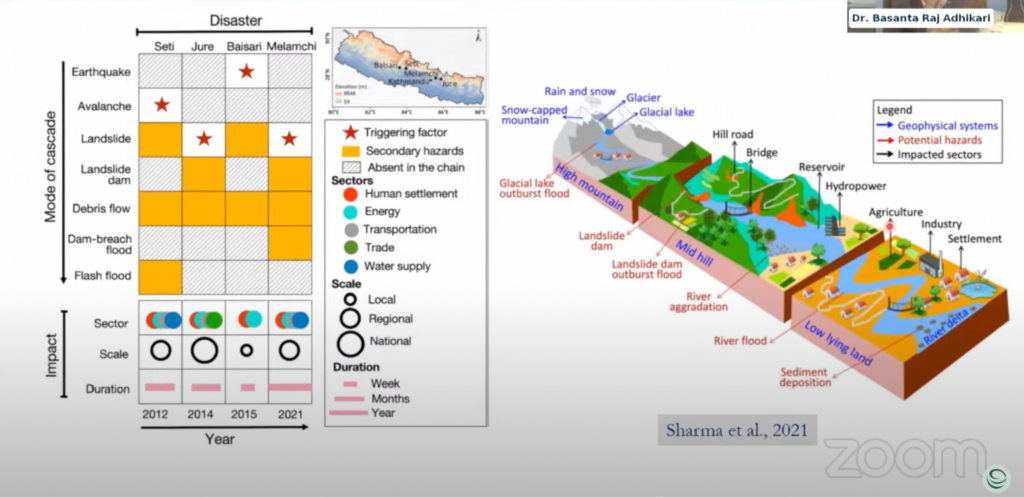
Courtesy of the Stimson Center

Courtesy of the Stimson Center
By Juliann Ventura
WASHINGTON– Developing new systems to detect disasters before they strike can reduce the damage communities suffer as climate change increases the intensity and frequencies of landslides, floods and other disasters in the Himalayan region, experts said on October 19 in a panel called, “Cascading Disasters and Vulnerable Infrastructure in the Himalaya: Placing the Sikkim and Melamchi Floods in Context.”
The urgency to implement better warning systems was made clear earlier this month when a glacial lake in the Himalayas flooded, destroying a dam and starting an avalanche. The disaster resulted in scores of deaths and more than 100 people missing, according to the Stimson Center, the think tank that organized Thursday’s panel.
“We are everywhere being faced with this increasing brunt of climate change that leaves us puzzled and a bit worried what is gonna happen next,” said Jakob Steiner, Ph.D., a geoscientist from the Himalayan University Consortium.

As global temperatures rise and other effects from climate change impact local communities, environmental experts have been looking for different early warning systems to prevent “cascading disasters,” climate events that follow from a primary trigger.
Brian Eyler, the director of the Stimson Center’s Energy, Water, and Sustainability Program, said that experts can better understand and prevent future climate disasters by studying different types of imagery, including satellite imagery, from past events. This technology “provides an opportunity to look backwards” and “conduct an autopsy” on the disaster, Eyler said.
Sanchita Neupane, a disaster risk specialist at the human rights organization People In Need, said that there are many benefits to working with local communities and governments in the Himalayan region. While her group has been primarily focused on the human impact following landslides, what they learned can carry over to a wide range of disasters. Her group prepares people in risk areas for disasters by communicating with the communities and discussing indicators of possible climate events.
“The more and more we promoted local observation and monitoring this year, we found that, first, it allows people to be more aware of their surroundings so they automatically take more responsive decisions to the landslide cues and signs that happen to the surroundings,” Neupane said. “Next, it allows humanitarian agencies to link early warnings made through community observation to early action.”
Experts said that accessible communication channels that are in the local language, specifically two-way communication channels between policymakers and community members, are also beneficial.
As people become more aware of climate hazards, that increases pressure on policymakers which leads to better protection for the community, Amelie Huber, Ph.D., an expert from the EuroNatur Foundation, an organization that focuses on conservation, said.
“Activists, civil society, intellectuals, general citizens started to talk about these things whereas before they hadn’t,” she said. “So it just shows risks much more, and that makes people talk about it. And I think that’s what’s needed to increase pressure on governments and developers to engage with the risks.”